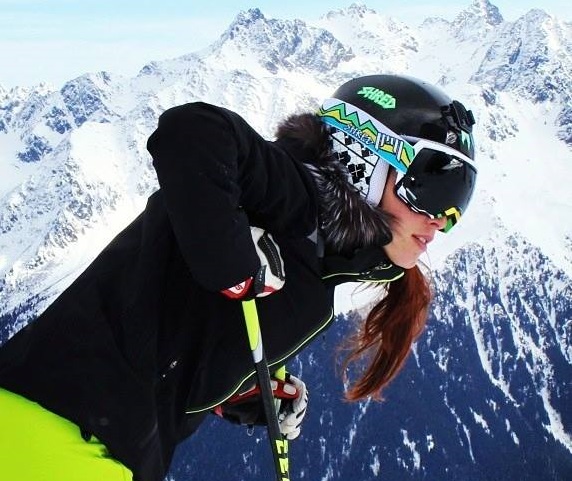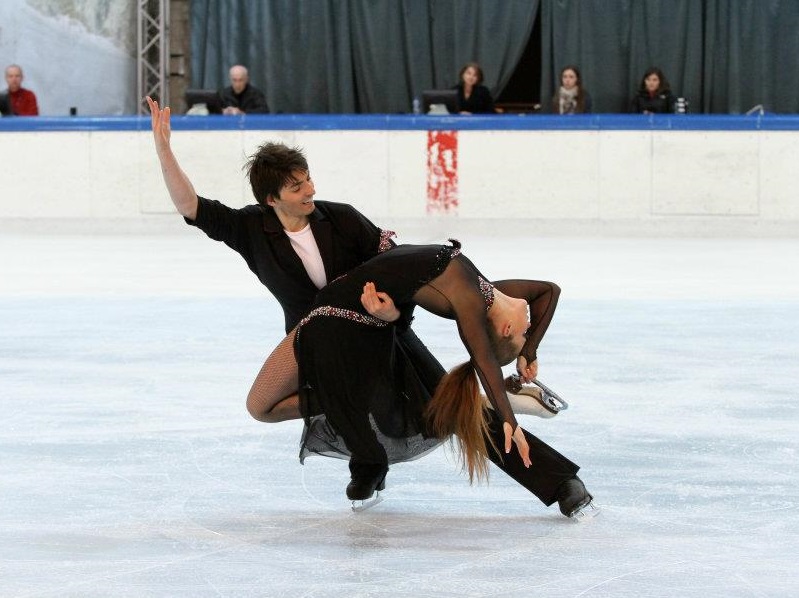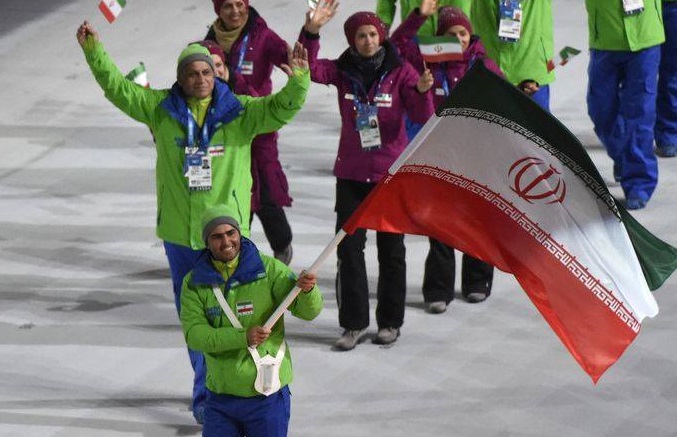By Hyacinth Mascarenhas
The Middle East and the Winter Olympics don’t really seem to go together.
A record 89 countries are competing in the 2014 Winter Games to take home their share of the Olympic glory, including 6 countries from the Middle East and South Asia.
Although countries with more sophisticated training programs and facilities like the United States, Canada and Russia do typically dominate the winter games, more tropical and warm-weather countries, including those from the MENASA region, are competing as well.
Training for the games in region, however, isn’t easy.
In addition to the lack of training facilities and opportunities at home, many athletes representing these countries often have to overcome nationality requirements, face the expensive question of where to train throughout the year and may even face societal pressures, particularly for women competing. Despite the challenges, however, their can-do spirit, dedication and incredible struggle to compete against the odds and represent their country on the world stage are nothing short of inspiring.
Here are 6 countries from the Middle East and South Asia that are competing for medals this year:
1. Lebanon

This year, Lebanon will be represented by 22-year-old alpine skier Jackie Chamoun and 18-year-old skier Alexandre Mohbat, both defying the odds by coming out of a non-traditional winter sports country to compete in the Olympics.
“It is very nice to represent our country,” Chamoun said. “People are surprised to see us there because they don’t expect Lebanon in the Winter Olympic Games. But we are really glad to have this chance to be a part of the Olympics and be able to exchange with people from other nationalities and talk about our culture and discover other cultures.”
Despite the availability of ski resorts and facilities in Lebanon, skiing in the Middle East is very different from Europe. The season in the Lebanon lasts only three to four months, making year-round training limited. According to Chamoun, the slopes are also shorter and the snow is softer than that on the longer, harder race courses at the Olympics.
This will also be the second time Chamoun will represent Lebanon in her career as the lone female Olympian from her country.
“When I finished the first Olympics it was so incredible and so magical I immediately wanted to go to Sochi,” she said. “It’s important to keep on dreaming and to have goals. If you are not dreaming about something you are never going to get there.”
2. Turkey

Just six athletes will represent Turkey in the ongoing Winter Olympic Games with Sabahattin Oğlago and Kelime Çetinkaya competing in the cross country event, Tuğba Kocaağa and Emre Şimşek in the Alpine skiing as well as Alisa Agafonova and Alper Uçar, Turkey’s third Olympic entry in figure skating sent by the conservative country.
Although the country has been sending representatives to the games every year since 1936, this year’s athletes will be competing for the possibility of winning the first Winter Olympics in the country’s history.
“We were able to compete in the Olympics by getting good results in Europe and the world by working over less than a year. We work in harmony. We are very glad that our coach has given us many opportunities,” said Uçar.
Turkey’s latest squad of athletes and future plans for improved athletic training facilities highlight how far the country has come in the international sporting arena and is indicative that the country’s steps in the right direction could one day turn into leaps.
3. Iran
Iran’s team of five Olympian athletes in Sochi represents the largest ever Iranian Olympic team at the Winter Olympics. Hossein Saveh Shemshaki, Forough Abbasi and Mohammad Koadarbandsari will compete in Alpine Skiing while Sattar Seid and Farzaneh Rezasoltani will represent Iran in cross-country skiing. Rezasoltani, 28, is also the first cross-country athlete from Iran.
Although Iranians has competed nine times in the Winter Olympics since 1956, the country has failed to bring home any medals so far.
“I am a representative of Iran in the sport of cross-country skiing and I hope our country can have a larger number of athletes in this sport in the near future. I am also hopeful to participate in the next Olympic Games in better conditions,” said Rezasoltani.
4. Morocco
 Teen alpine skiers Canadian-born Adam Lamhamedi and American-born Kenza Tazi will be representing Morocco and they certainly have a lot to be proud about this year at the Sochi Games.
Teen alpine skiers Canadian-born Adam Lamhamedi and American-born Kenza Tazi will be representing Morocco and they certainly have a lot to be proud about this year at the Sochi Games.
Lamhamedi made history by becoming the first African to win a medal at a Winter Olympics event when he struck gold at the Winter Youth Olympic Games in 2012. After competing in the Winter Olympic five times so far, Morocco is also sending its youngest Olympian, Kenza Tazi who just turned 18 earlier this month and will compete in the slalom and giant slalom.
This year, both Olympians made their debut on the world stage with Lamhamedi marching proudly into the Fisht Olympic Stadium as the flag-bearer representing Morocco.
“I wanted to prove that Moroccans can ski well, and I proved it [in Innsbruck], said Lamhamedi. This represents that in life you can do everything: never give up. And now I have made it to the big stage in Sochi,” he added.
5. Pakistan
 Pakistan’s Mohammad Karim will be the lone athlete representing the South Asian nation and only the second Pakistani ever to compete at the winter Games. Like many Olympic athletes, Karim discovered his passion for skiing at a young age. Unlike his Western counterparts, however, he started out with home-made wooden planks.
Pakistan’s Mohammad Karim will be the lone athlete representing the South Asian nation and only the second Pakistani ever to compete at the winter Games. Like many Olympic athletes, Karim discovered his passion for skiing at a young age. Unlike his Western counterparts, however, he started out with home-made wooden planks.
“I started skiing at the age of four years on wooden skis made by my uncle. Our schools were closed in the winter and skiing was the only way to spend our holidays,” Karim said.
Pakistan’s ski federation, which is run by the air force, spotted Karim at one of their annual competition to recruit new talent. In 2006, the organization paid for him to train in Japan and Austria to train.
Karim said he hopes to finish in the top 50 in the giant slalom and help raise awareness for the sport to encourage the Pakistani government to improve facilities for future talent and aspiring Olympian athletes.
“I can’t wait to ski on the Sochi snow,” said Karim. “I know it will be tough among the world’s best but I have practiced hard and I will do my best to leave my mark at the highest level.”
6. India

Indian athletes will finally be able to compete proudly under their country’s tricolor flag after the International Olympic Committee reinstated India’s National Olympic Committee after a ban of more than a year.
This year, the country is represented by luger Shiva Keshavan, a veteran of four Olympics, and Indian skiers Himanshu Thakur and Nadeem Iqbal. As India’s most prominent Winter Olympics athlete, Keshavan made headlines across the globe with his inspiring story.
Due to a severe lack of winter sport facilities in north India, Keshavan build his luge sled in his garage, and trained on wheels down Himalayan roads dodging traffic and the occasional goats. He went on to become the youngest Olympian luger at the age of 16 in 1998. His incredible crash-and-save during a practice run at Sochi also put him in the spotlight and he still shows no sign of slowing down. In a cricket-crazy country like India, Keshavan is hoping that his story and performance in Sochi will help inspire the nation and future athletes.
“I know that I’ve still got quite a bit of fight left in me and I can still get stronger,” said Keshavan. “It’s very important, we’re a big country and it’s very good that we’re playing cricket, we’re doing well. But I think there are many other sports that we can take up… I’m surprised at the amount of interest and publicity this has got back in India and I hope this translates into better facilities, not just for me but for the future generation of athletes.”




















YAY MOROCCO! 🙂
So true! India is so cricket-crazy, it’s a shame they don’t pay much attention to other international competitions.
Shiva’s recovery from that crash during practice was crazy!! Maybe his publicity will open India’s eyes.
[…] Sochi Winter Olympics: 6 unexpected Olympic teams competing from the Middle East and South Asia. February 17th, 2014. […]